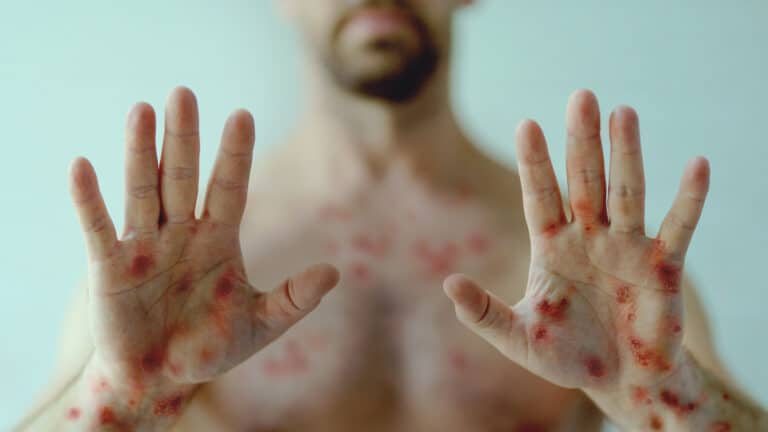People drink for a myriad of reasons. Some to celebrate, others to relax.
The problems that arise from alcohol are when it is consumed in excess. Many people don’t realize that there is a direct correlation between binge drinking and depression.
If drinking exacerbates depression, then why am I drinking not to feel depressed?
This may be a question that has crossed your mind or that of someone you know. Although alcohol initially releases dopamine in your brain, which has a stimulating effect, it also interferes with neurotransmitters linked to mood regulation.
Binge drinking is not necessarily indicative of alcohol abuse, but it can be, and it can lead to alcoholism. When excessive consumption becomes habitual and interferes with your personal and professional well-being, this may be a sign of an alcohol use disorder.
This article will discuss drinking and depression, how they are linked, and what you can do about it.
Getting Drunk to Feel Better
Binge drinking is defined as 4 or more drinks within a two-hour period for women, and 5 or more drinks within 2 hours, for men.
According to the CDC, one-in-six adults in the U.S. binge drinks about four times per month. The consumption rate is about 7 drinks per binge.
Drinking to the point of drunkenness is common in our culture. But that doesn’t make it good for you.
Many people struggle with drinking to cope with difficult feelings, such as sadness and anger. People get drunk to feel better, to “calm their nerves.” While alcohol initially delivers a calming effect, too much of it can severely alter your emotional state.
Alcohol and Your Nervous System
Moderate drinking may carry some health benefits, such as reducing your risk of heart disease, stroke, and diabetes. However, this is no definitive evidence around this.
On the other hand, binge drinking holds absolutely no health benefits.
Drinking excessively can take a huge toll on your health, especially your nervous system. Simply put, binge drinking can cause brain damage.
Alcohol contracts brain tissues, destroy brain cells and depress the central nervous system. This also negatively affects cognition and memory.
So, why on earth do our bodies crave this chemical when it can hurt us so badly?
The answer lies within our nervous system.
Dopamine receptors within the brain are triggered by alcohol. When active, these “reward circuits” give us the feeling of euphoria, which then leaves us wanting more of that which triggered them in the first place.
Interestingly, however, over time, dopamine levels begin to decrease rapidly, causing us to crash into a miserable state. When this happens, we now crave more alcohol to feel better.
So, we drink, we feel good. We drink more, we feel bad. So, then, we drink more not to feel bad.
In the end, we only feel worse.
Signs of Alcoholism
When binge drinking turns into a frequent activity and begins to have negative consequences on your personal life, professional life, and overall health, this is a strong indicator of an addiction problem.
Not everyone who drinks excessively struggles with addiction. Those who suffer from alcoholism or other forms of addiction often show signs such as:
- An inability to limit drinking, use of substance, or behavior
- Abandoning relationships and/or commitments
- Ignoring risk factors associated with substance use
- Frequent mood changes
Many who are recovering from addictions such as alcoholism describe it as an obsession. This may be one of the most easily identifiable signs of alcoholism. If you cannot make it through the day without thinking about drinking and feel trapped by the craving, you may have a more serious issue.
When drinking interferes with your sense of self-control and well-being, it may be necessary to get help.
Binge Drinking and Depression
Sadness and depression after binge drinking are pervasive. After all, alcohol is a depressant. Since alcohol affects the neurotransmitters that regulate mood, it’s no wonder why people often fall into depression.
But, there is a huge difference between feeling down in the dumps occasionally and a clinical depressive disorder.
The medical definition of depression describes it as a mood disorder that makes you feel constant sadness or disinterest in life. This is different from feeling blue after a tragic life event or difficult experience. However, external factors can lead to the development of a disorder, such as:
- Illness and other biological influences
- Major life changes, stress, and exposure to trauma
- Side effects from taking certain medications to treat other conditions
- Poverty and/or low socioeconomic status
- Use of illicit substances or alcohol
Clinical depression stays with you beyond your external circumstances and negatively affects your ability to function and enjoy life.
Many people self-medicate feelings of depression with alcohol. Unfortunately, the immediate rush that one gets subsides, only worsening symptoms. Because of the excess in which they drink, some alter their brain chemicals to the point of becoming clinically depressed.
Prolonged use of alcohol to treat a medical condition can eventually lead to a chronic medical condition.
Although there are different categories of depressive disorders, they all share similar characteristics:
- Persistent sadness, nervousness, and/or feeling of emptiness
- Feeling of hopelessness
- Irritability, frustration, or restlessness
- Difficulty concentrating and making decisions
- Lethargy and difficulty speaking/moving
- Lost interest in hobbies or activities you once enjoyed
- Trouble falling asleep or staying asleep
- Change in appetite with notable weight loss or weight gain
Genetics also can play a part in both substance abuse disorders and clinical depression. Having the facts about binge drinking, alcoholism, and the link with depression is a start in making positive changes.
Ways to Get Help
As you can see, binge drinking is detrimental to your health and can become a long-term issue that needs treatment.
There’s a big difference between having a glass of wine now and then versus drinking to get you through the day and constantly change how you’re feeling. If you feel that your drinking has gotten out of control, don’t hesitate to seek help. Contact us today and get your life back on track.






